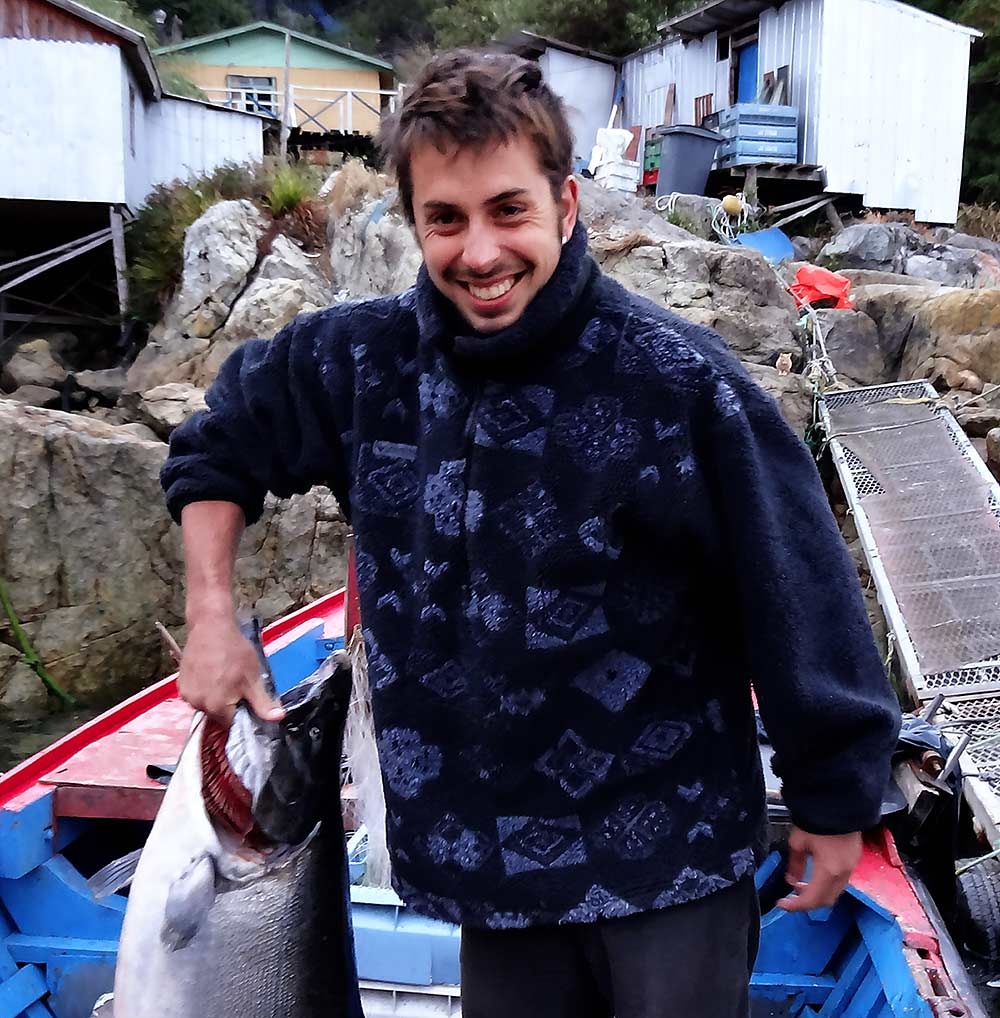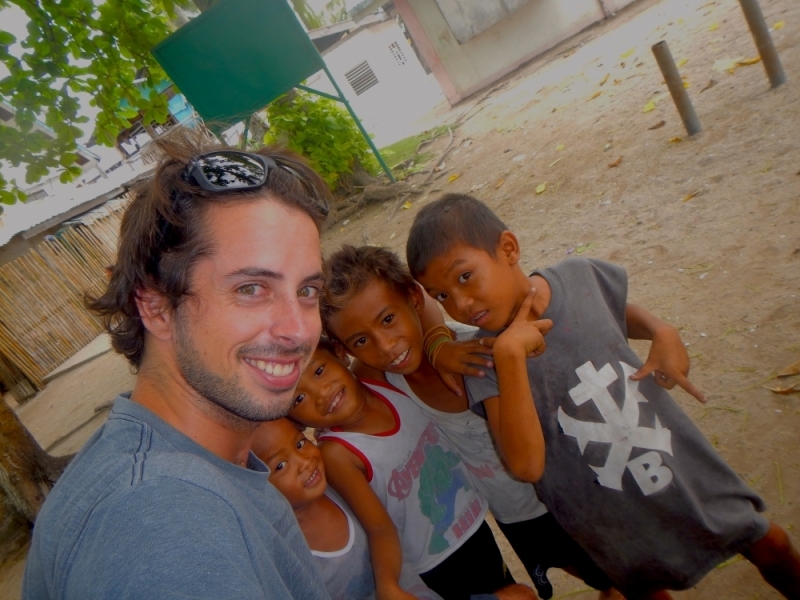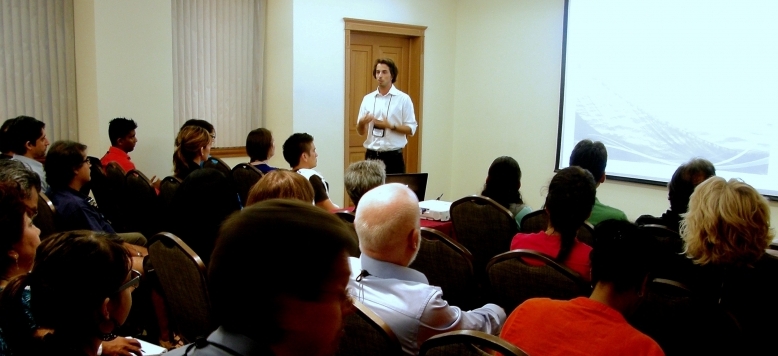Rodrigo Oyanedel, originally from Santiago, Chile, received a BS from the new Marine Biology program at the Pontificia Universidad Católica de Chile in 2013. He works with artisanal fishing communities, mainly contributing to the development of projects using interdisciplinary approaches and methodologies. He has also worked on conservation initiatives and learning about how they develop by identifying key factors in the establishment of Marine Protected Areas in central Chile.
Rodrigo is now working to create a spatial planning tool to help in the design of Territorial Use Rights for Fishers (TURFs) and Marine Protected Areas. This tool will be used in the “Fish Forever” project: a global partnership between The Environmental Defense Fund, Rare, and the Sustainable Fisheries Group at the University of California, Santa Barbara. “Fish Forever” sites are located in Brazil, Mozambique, Indonesia, Philippines and Belize, and utilize innovative approaches to address overfishing and sustain productive fisheries.
Rodrigo has experience working with diverse stakeholders, from governmental agencies and scientists to local users and artisanal fishermen. He anticipates building on these experiences throughout his career to promote better planning and design processes for small-scale fisheries in Latin America. He is also interested in obtaining a better understanding of artisanal fishermen communities across Latin America in order to find the most effective ways to include fishermen’s knowledge and experience into management schemes.
Since completing the MESM program, Rodrigo has been working with the Walton Family Foundation on sustainable fisheries and marine conservation inititiative in Chile and Peru, and with EDF on their small-scale fisheries managment program in Chile.
























































